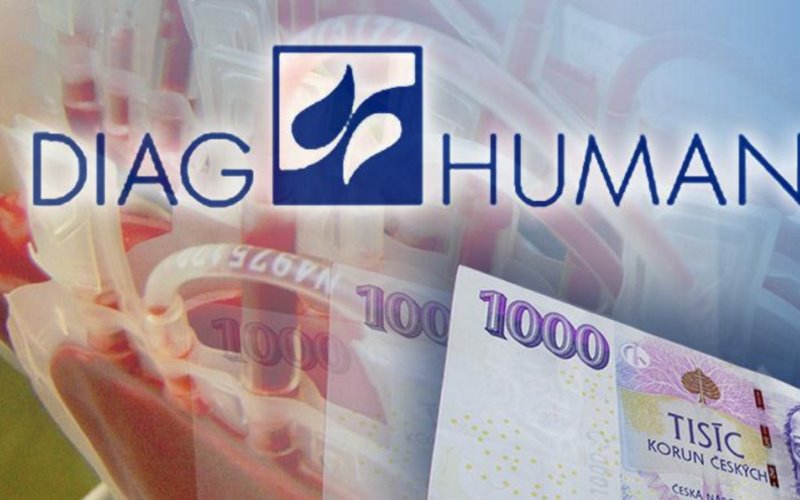Following a decades-long attempt to dodge its payment obligations, a recent hearing in London has forced the Czech Republic to provide an unlimited cost undertaking to Lichtenstein company Diag Human and its owner Josef Stava.
The ongoing legal battle has unearthed allegations of corruption and misconduct within the Czech government and called into question the integrity of its public services.
Diag Human and Mr Stava originally sought £4 million in security for their legal costs. However, in the end, the Court did not need to order security because the Czech Republic offered to provide an unlimited undertaking to pay Diag Human and Mr Stava’s costs (potentially millions of pounds) if it loses the case. This huge concession by the Czech Republic was made during the hearing in the Commercial Court in London, after the Judge pressed the Czech Republic’s lawyer to explain why it had never said it would pay the costs of the proceedings in London if it lost the case.
The Judge said that the Czech Republic should have done that immediately, long before the matter came before the Court. It was only then that the Czech Republic finally offered to give the unlimited undertaking to the Court, which its lawyers then confirmed the next day in a witness statement.
This long-running dispute dates back to the early 1990s when a letter from the Czech Health Minister allegedly led to the collapse of Diag Human’s blood plasma business in the country. In 2008 Diag Human successfully secured a USD 350 million award with interest against the state. That has been recognised in Luxembourg, with the resulting prospect of enforcement across the EU. Diag Human’s attempts to enforce the 2008 award have been consistently met with hurdles, including a contested attempt by the Czech Republic to force a review of that award by a review tribunal, which has raised very serious concerns of corruption by the Czech Republic.
During the recent proceedings, the Court heard evidence as to this corruption. A handwritten note from Michael Svorc, the then Director of the Legal Department of the Ministry of Finance, was described by the Court. The Svorc note documented an extraordinary meeting in the Prime Minister’s office, noting that the state held a member of the review tribunal “by the balls,” and that another arbitrator was asking the state for “subsidies” in order to procure the outcome the Czech Republic sought, strongly implying that the Czech Republic influenced the review tribunal’s decision.
Nearly a decade after the review tribunal’s decision, a London-seated arbitration tribunal ruled in May 2022 that the Czech Republic was liable for breaching the fair and equitable treatment standard under the Czech-Swiss bilateral investment treaty, resulting in an award of over USD 730 million against the Czech state (including interest).
As part of its decades-long attempt to avoid its payment obligations, the Czech Republic attempted to set aside the USD 730 million award by filing an application in the English Court last year. Diag Human and Mr Stava have requested summary dismissal of the challenge, and the substantive hearing for both the challenge and dismissal applications is scheduled for January 2024.
Since the 2022 award was handed down, Diag Human has refrained from enforcing the 2008 commercial award, even though recognised in Luxembourg. Even if the Czech Republic succeeds in its challenge of the 2022 award in London, Diag Human would be able to revive its enforcement of the 2008 award, which is now for an even larger sum than the 2008 award. There is therefore no realistic escape for the Czech Republic from its obligations to compensate Diag Human.
In the meantime, Diag Human and Mr Stava are appealing to the Court of Appeal in London, to try to force the Czech Republic to pay some or all of the USD 730 million value of the award (or over GBP 570m) into Court as security during the Czech Republic’s challenge to the 2022 award. On 31 July 2023, they lodged their notice of appeal with the Court of Appeal contending that the Judge had been wrong not to order the Czech Republic to pay some or all of the award sum into Court and that he applied the wrong legal test under the English Arbitration Act 1996.
In the appeal, Diag Human and Mr Stava also point to the clear evidence of corruption by the State in the Svorc note and contend that this was a fundamental attack on the integrity of the arbitration process and the rule of law.
A spokesperson for Diag Human says the company “looks forward to the opportunity to present to the Court the full extent of the corruption perpetrated by the Czech Republic in this very long-running fight for justice”.
In filing their application with the Court of Appeal, Diag Human and Mr Stava have also asked the Court for an early hearing, so that the Court of Appeal’s decision could be made as soon as September or October if the Court agrees.
When the English Court of Appeal considers the Czech Republic’s past conduct which has plagued this case for so many years it may find the state’s conduct to be sufficiently egregious and corrupt to justify ordering the Czech Republic to pay the USD 730 million award into Court pending the hearing that will resolve the Czech Republic’s challenge in January next year.
If so, this could finally be the year which brings an end to Diag Human and Mr Stava’s thirty-year battle for justice.


















































